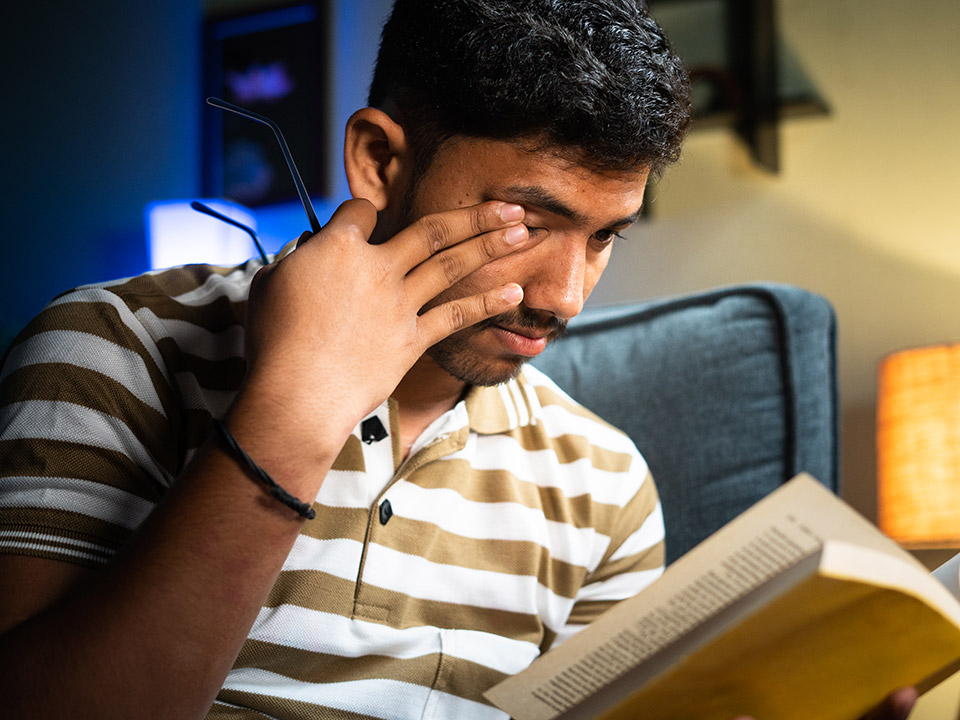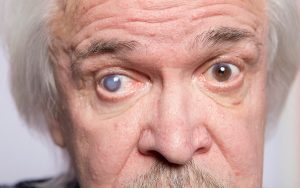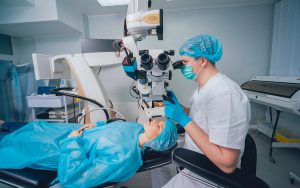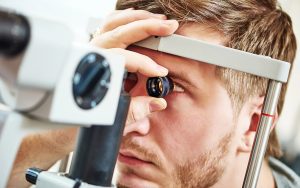What Can I Do For Poor Night Vision?

Is your eyesight usually excellent during the day but you find it challenging to see well at night? Not to worry, you are not alone. Poor night vision or nyctalopia is a common problem that affects millions of people. But just because it is popular does not mean you should ignore it.
Poor night vision is dangerous as it puts your safety at risk. But you can do something about it, as the information below will cover. It will also cover some of the primary causes of impaired night vision and the primary symptoms. Keep scrolling to learn more.
What Causes Night Blindness?
There are multiple reasons why your eyesight deteriorates at night. The most common cause is that your distance prescription for your visual aids (glasses, contacts, etc.) has changed a little. This could worsen your night vision, thus the challenge of seeing clearly. Besides this, several conditions could make your night vision bad.
Myopia
Nearsightedness, also called myopia, is a condition where a person does not see objects well from a distance. People with myopia, especially high myopic prescriptions, have trouble with night vision. The anatomical characteristics make it hard to see well at night, even when wearing visual aids.
Vitamin A deficiency
Vitamin A is present in carrots and leafy vegetables and is necessary to keep the retina healthy. Therefore, a lack of vitamin A means your retina will not function as it should. And since the retina is where images are focused, you will have trouble seeing at night.
Glaucoma
Glaucoma is a term that describes multiple eye disorders that damage the optic nerve. The optic nerve sends signals from the retina to the brain to create images. Patients with glaucoma can develop night blindness due to the medications they take. These medications constrict the pupil making it harder to see in the evening.
Diabetes
High blood sugar damages the blood vessels and nerves in the eyes. This leads to a problem known as retinopathy. Therefore, many diabetes patients have trouble seeing well at night and in low light conditions.
Astigmatism
This is an irregularity of the eye’s optic system, specifically in the cornea. This eye condition stops patients from seeing objects sharply, up close or and from a distance. Pupil dilation worsens the condition, and thus patients struggle to see well at night.
Cataracts
This condition is when the natural lens in the eye loses transparency, making it hard to see. The most common symptom of this condition is poor night vision.
Zinc deficiency
Lack of zinc in the body is not a common cause of night blindness, but a severe deficiency of this nutrient will reflect in your vision. A doctor can diagnose this, and you can eat more zinc from poultry, beans, and nuts.
Excessive sun exposure
Prolonged exposure to sunlight damages the eyes and increases the chances of developing cataracts. It is, therefore, a significant cause of poor night vision.
Surgery complications
And lastly, you could develop complications after undergoing eye surgeries. Many patients experience temporary dryness, halos and glares around objects, and fluctuating vision immediately after surgery. While it is uncommon for symptoms to be permanent, it can happen, and one of the complications you could develop is poor night vision.
Symptoms Of Poor Night Vision
Some of the top symptoms of poor night vision are:
- Blurry vision
- Seeing halos around lights
- Eyestrain
- Dry eye
- Seeing clouds around objects
- Sensitivity to glare
- Struggling to see in the dark or poorly-lit areas
Because of these severe symptoms, people with poor night vision should avoid driving, walking, and other activities at night or in poorly-lit areas.
Treatment Options For Poor Night Vision
The most effective treatment for poor night vision is first to determine the cause and then treat the symptoms of the reason. For example, if you have a cataract, your doctor will treat the cataracts to help with poor night vision.
A qualified ophthalmologist should help you determine the cause of your poor night vision and take measures to treat the symptoms and improve your night vision.
However, it is essential to note that treating night blindness could be as easy as switching your prescription or medications. Your ophthalmologist will recommend a variety of treatment options, including:
- Cataract surgery
- Progressive lenses that allow you to transition easily from light to dark environments
- Night-driving glasses which have an anti-reflective coating that eliminates the glare from oncoming vehicles plus streetlights
- Supplements
- Managing diabetes by controlling blood sugar levels
- Updated corrective lens prescription
Unfortunately, there is no ‘home treatment’ option for night blindness. In fact, if you notice any changes in the ability to see well at night, you should visit your eye doctor for examination and diagnosis. Do not try and treat any symptoms at home because you could make the condition worse.
Can I Prevent Night Blindness?
Unfortunately, you cannot prevent night blindness if it is something to do with birth defects and genetic conditions. However, you can avoid it if the cause is a preventable condition.
Additionally, you can prevent night blindness caused by a vitamin A deficiency by eating food rich in the nutrient. You can find many excellent sources of vitamin A in various locally-available foods, including:
- Cantaloupes
- Carrots
- Pumpkins
- Butternut squash
- Mangoes
- Sweet potatoes
- Milk
- Eggs
- Spinach
- Collard greens
While you are at it, eating more eggs, meat, and poultry will prevent zinc deficiency.
You should also wear sunglasses to prevent excessive exposure to harmful UV rays. This will prevent the risk of developing cataracts while preventing macular degeneration and glaucoma. When purchasing sunglasses, ensure that they block out at least 99% of UVA and UVB rays. In addition, ensure that they protect your eyes from all angles and filter visible blue light.
Exercising enough can also prevent the risk of eye conditions, lower eye pressure, and even blood glucose levels. On top of that, ensure that you go for regular eye exams. An ophthalmologist will be able to detect any problems with your eyes quickly. Quick diagnosis increases the chances of successful treatment.




